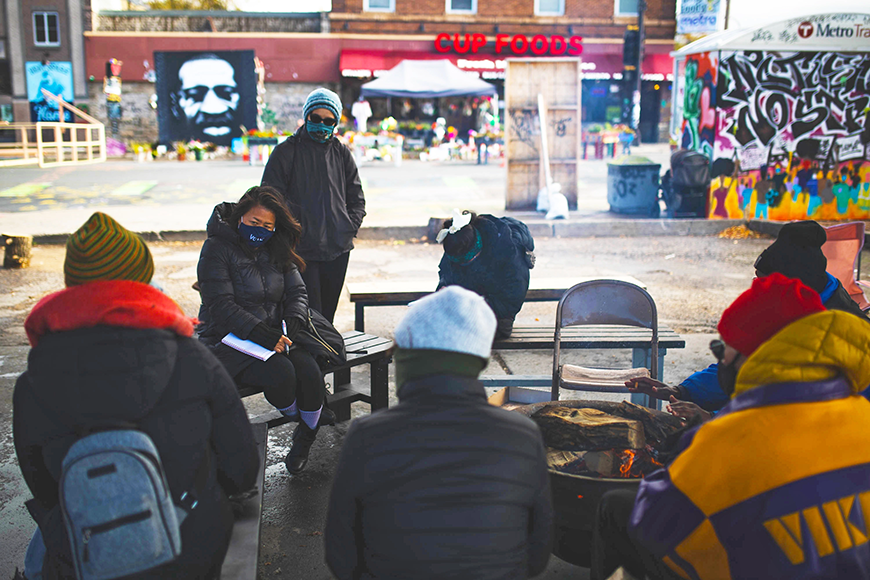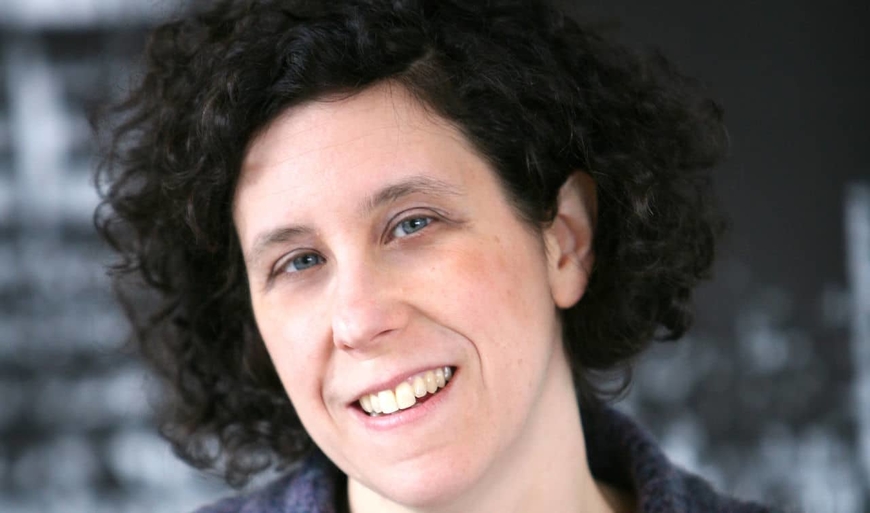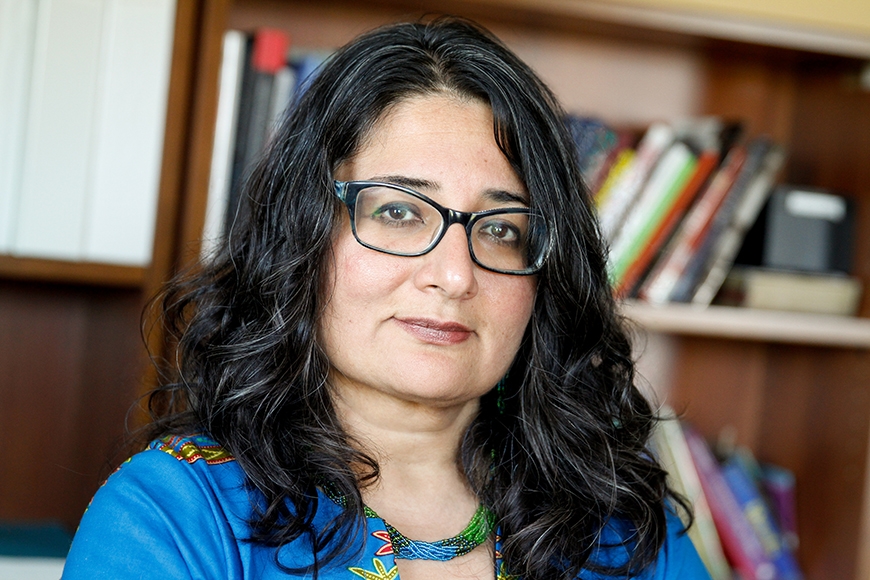Humanities on the front line, community at the center
No scholar, or scholarly work, lives in a vacuum. Yet for centuries, much of Western academia has functioned as if that were the case. AK Wright, a PhD candidate in gender, women & sexuality studies, is eager to help change that.
“When you’re taking classes, and you have your head down because you’re trying to write or publish, you can become isolated from the community you live in,” Wright says. “But we’re still living in communities; we’re still being impacted” by what other community members are experiencing.
Wright is embarking on a research journey that doesn’t just include community, but centers it. Wright’s project, a podcast series based at Pillsbury House Theatre, is focused on conversations with Black performers involved in the Call to Remember collaboration. The conversations will take place over food, a central part of cultural identity and a powerful form of community care and healing. The podcast Call to Remember seeks to “prioritize Blackness and explore remembrance as a means to cultivate community” through Black improvisation and Black art, Wright says.
That is just one of many projects made possible through Minnesota Transform, a $5 million public humanities initiative funded by the Andrew W. Mellon Higher Learning Program whose mission is to “collaborate with Black, Indigenous, immigrant, and refugee communities to amplify historical interpretations, create new narratives and dialogues, foster community well-being, and inform policy responses.” As Tracey Deutsch, associate professor of history and one of six faculty team members who secured the Mellon grant, says, “We want to put the humanities on the front lines of the struggle for justice.”
Minnesota Transform is sweeping in scope, striving to “hold the University accountable for its complicities … to pave the way for redress, and build [its] capacity to be a site of racial justice.” The endeavor challenges traditional academic hierarchies and processes, placing community at the center. That’s both a matter of justice and of improving the quality and richness of research, says faculty team leader Professor Jigna Desai, gender, women, & sexuality studies, who is among those who envisioned the effort.
Minnesota Transform outcomes include undergraduate and graduate internships, podcasts, documentaries, archival reports, museum exhibits, and public histories of the COVID pandemic and racial justice responses. Projects include a push for Indigenous language revitalization, specifically Dakota and Ojibwe; an exhibit on the history of mutual aid in Minneapolis; and an archival exploration, as the AIDS epidemic turns 40, of the Aliveness Project and its work.
Relationship-building with community partners is key. Minnesota Transform aims to change the very nature of public humanities research and how it’s conducted—for the benefit of all. “We’re creating opportunities to address the fact that the University has mostly had extractive relationships with its BIPOC [and other marginalized] communities,” Desai says. “We want to transform that through relationships that are mutually beneficial, in which we redistribute resources that support the communities we’re working with.”
Mellon announced the grant as the nation reeled from an exploding pandemic and the murder of George Floyd. Desai and her colleagues moved quickly to create their proposal, while mindful that the work with community must be done “at the speed of trust.” Though some efforts under the Minnesota Transform umbrella had begun before the grant, it enabled the launch of many more. And while COVID presented challenges, it also offered a silver lining: embracing video to transcend geography and partner with faculty at the University of Minnesota Duluth.
Although the approach that Minnesota Transform scholars are taking is time- and labor-intensive, Desai and Deutsch hope it can serve as a model for other researchers and the University as a whole. “We want to change the processes, relationships, and therefore the outcomes,” Desai says. “How we do the work: that’s a big part of racial justice.”
This article is part of a larger feature called "How to Move Mountains." Read about other urgent and relevant work being done by CLA scholars.


